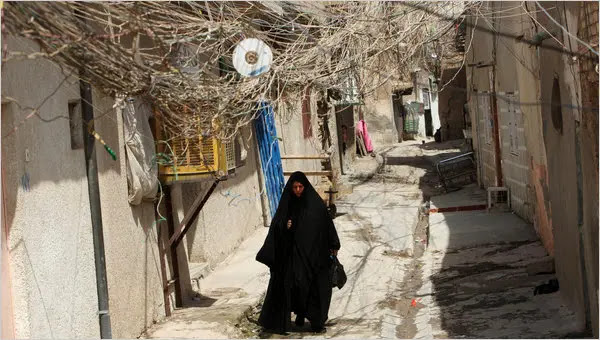Iraq: Electricity Shortages Leads Iraq to Discussion on Nuclear Reactors
In response to crippling electricity shortages, the Iraqi government has discussed building a nuclear reactor for peaceful purposes.
Keep reading to understand exactly what happened to Iraq's electricity infrastructure.
The media office of Iraqi Prime Minister Mohammed Shia al-Sudani said in a statement that the Ministerial Council for National Security discussed "establishing a limited nuclear reactor for peaceful purposes and the production of clean electric energy that contributes to reducing dependency on other energy sources such as gas and oil."
Ziyad Ali Fadel, the Iraqi Minister of Electricity, announced last June that Iraq produces 24 thousand megawatts a day, an increase of 22 percent over last year.
In addition, Iraq relies heavily on natural gas imports from Iran, which cost billions each year and are often cut off by US sanctions due to Iraq's inability to pay for the gas.
Several Gulf states are helping Iraq develop its natural gas production infrastructure. Iraq has large quantities of natural gas, but much of it is wasted in oil extraction.
Bloomberg reported in June 2021 that Iraq planned to build eight nuclear power plants for $40 billion to generate 11 gigawatts of electricity.
According to Kamal Hussain Latif, the Iraqi Radioactive Sources Regulatory Authority (IRSRA) chairman, Iraq needs nuclear power to produce electricity and desalinize water. According to Latif, we will face major difficulties if nuclear power isn't installed by 2030.
According to Latif, the Iraqi cabinet discussed building nuclear reactors with French and US officials and sought assistance from Russian and South Korean firms.
As a result of the Gulf War in 1991, the UN Security Council (UNSC) ordered the International Atomic Energy Agency (IAEA) to dismantle Iraq's nuclear weapons program.
As of October 1997, the IAEA had completed 30 inspections, overseeing the dismantling of nuclear facilities and removing all weapons-useable nuclear material.
After ending cooperation with the IAEA in 1998, Iraq permitted inspections to resume in 2002 to prevent a US-led invasion based on allegations fabricated by US officials that Iraq possessed so-called weapons of mass destruction.
In three months of inspections, the IAEA found "no evidence or plausible indications of the revival of a nuclear weapon program in Iraq."
In March 2003, President George W. Bush ordered the US military to invade Iraq, resulting in some 300,000 Iraqi deaths during the invasion and subsequent civil war.
Since then, Iraqis have not had reliable electricity from the state and rely heavily on gas-powered generators to power their homes.
The Iraq Survey Group (ISG) of the CIA concluded in 2004 that Iraq had not restarted its nuclear program before the invasion.





